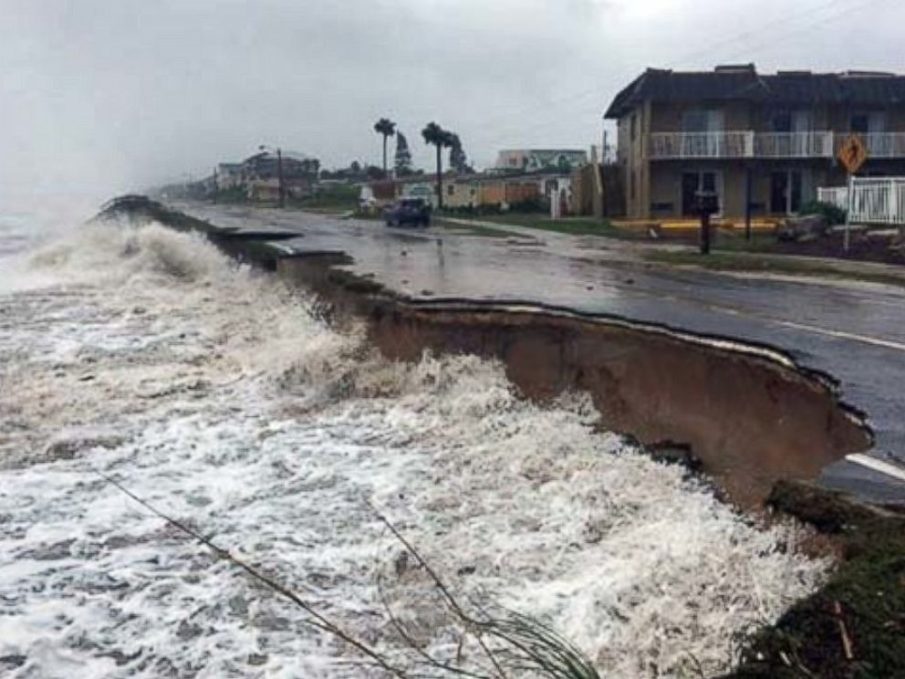We’re entering that time of year when we can expect an increase in bad weather and other natural disasters, such as hurricanes, flooding, and even blizzards. Hurricane Matthew, for instance, has already left hundreds dead in Haiti and has already hit land in the U.S. Here are five things you can do to help prepare your family for whatever disasters you may face.
1. Have a first-aid kit and know how to use it
Create a first-aid kit for your car and your house at a minimum. Some people even choose to carry with them an individual first-aid kit (IFAK) as part of their everyday carry (EDC). There are several articles on both SOFREP and the Loadout Room that cover this topic. Once you create a first-aid kit, learn how to use the equipment. The latest and greatest medical gear won’t do you any good unless you are familiar with it.
Check out these articles:
“4 MUST Have Items In Every Medical Kit”
“Watch: Tourniquet | How To Use Them”
“No one is coming…it is up to us”
2. Customize your prep for the area you live in
This may seem pretty basic, but sometimes it’s overlooked. Some people try to prepare for everything, which can divert funds and efforts to the wrong places. Know what disasters are common for your area and focus on them first. For example, if you live in Texas like me, you can prep for tornados, power outages, wildfires, and flooding. There really are no disaster-free areas. If not a natural disaster, you can certainly prepare for gas or food shortages.
3. Figure out your essentials
What matters to you and your family the most? I am not talking only about valuables (but cash is a great thing to have in a disaster, too), but items that your family cannot live without, such as electricity, medical equipment, medication, food storage, security, air conditioning/fans (for some, this is medically necessary), etc. Food and water will be covered in another section. Figure out what you need to carry on with your minimal needs. For example, if someone in your family has a medical condition that requires supplemental oxygen, you will have to prepare for power outages. You may need a generator to run your oxygen concentrator throughout the day and night. That means you may have to make a plan to store extra fuel. Find out your basic essentials and start planning.
Check out these articles:
“Preparing for disasters with a generator”
“Emergency Preparedness: Heating and Electricity”
Already have an account? Sign In
Two ways to continue to read this article.
Subscribe
$1.99
every 4 weeks
- Unlimited access to all articles
- Support independent journalism
- Ad-free reading experience
Subscribe Now
Recurring Monthly. Cancel Anytime.
“Prepping 101: Threat Assessment and Your Secure Site”
4. Food and water prep
There’s plenty of prepper food out there—MREs, camping food, five-gallon pre-packaged meal kits, etc.—and it can be overwhelming if you don’t know where to start. One of the first things that you should think about is what length of time you want to prep for—30 days, 60 days, 90 days, or more. The Department of Homeland Security recommends every household have at least three days worth of food and water, but that may need to be stretched for at least a week or more depending on your personal circumstances. Once you have determined the length of time, you can start calculating the amount of food and water you need based on the size of your family. Storing water and water filtration are also things to consider. Don’t forget to include in your water storage plan enough water for bathing and food preparation.
Check out these articles:
“Prepping 101: Potable Water Storage and Filtration”
“Prepping 101: Beans, Bullets, and Band-Aids”
Make a plan A, B, and C
Finally, you have to make a plan. In fact, make more than one. Figure out your limitations and know when you need to make the decision to stay or leave. If your area is being evacuated due to a hurricane or wildfire, you may have no choice but to leave. If you decide to leave, you have to make a plan on where to go. Figure out how far you can make it from your house on one tank of gas, and start from there. Where does your closest relative or close friend live? Consider establishing a link-up point in case members of your family are separated.
Check out these articles:
“Handling a disaster abroad”
“Hunkering down during a disaster”
“Disaster preparation: Shelter and gear”
The ultimate survival bag”
“Build the Modern Bugout Bag“
Image courtesy of ABC News










COMMENTS